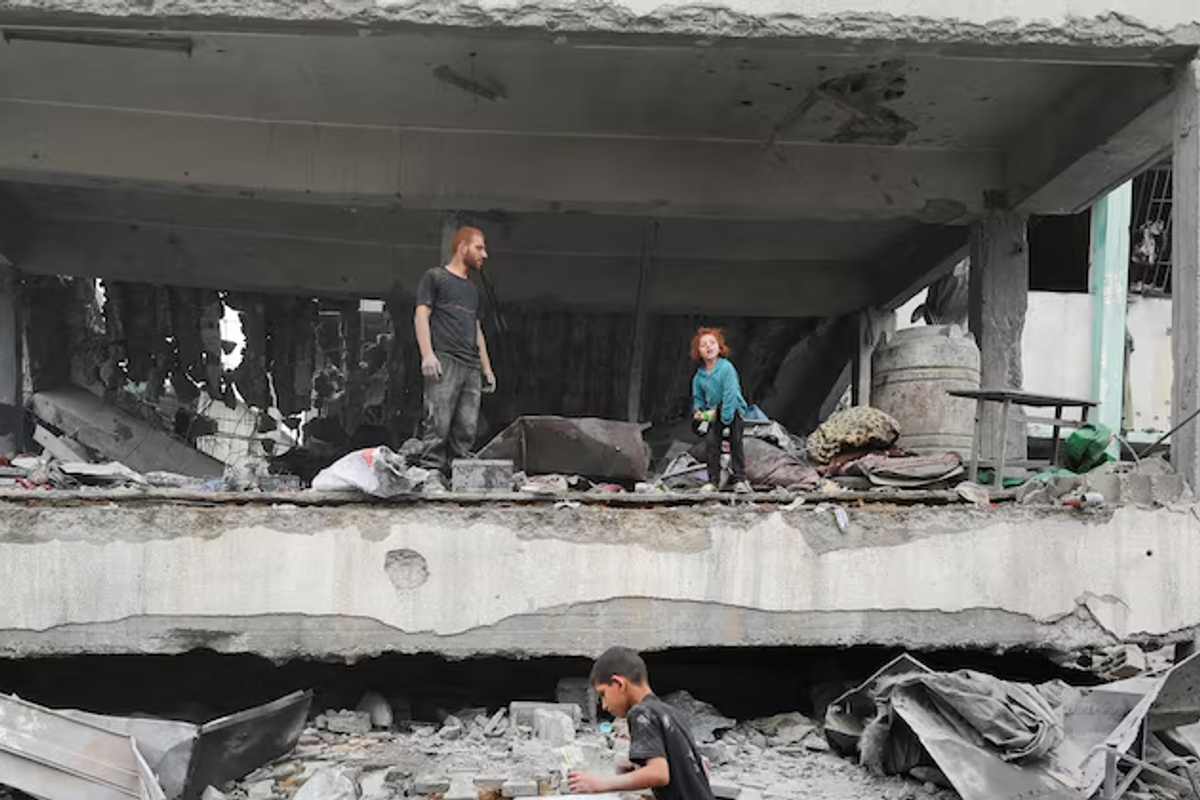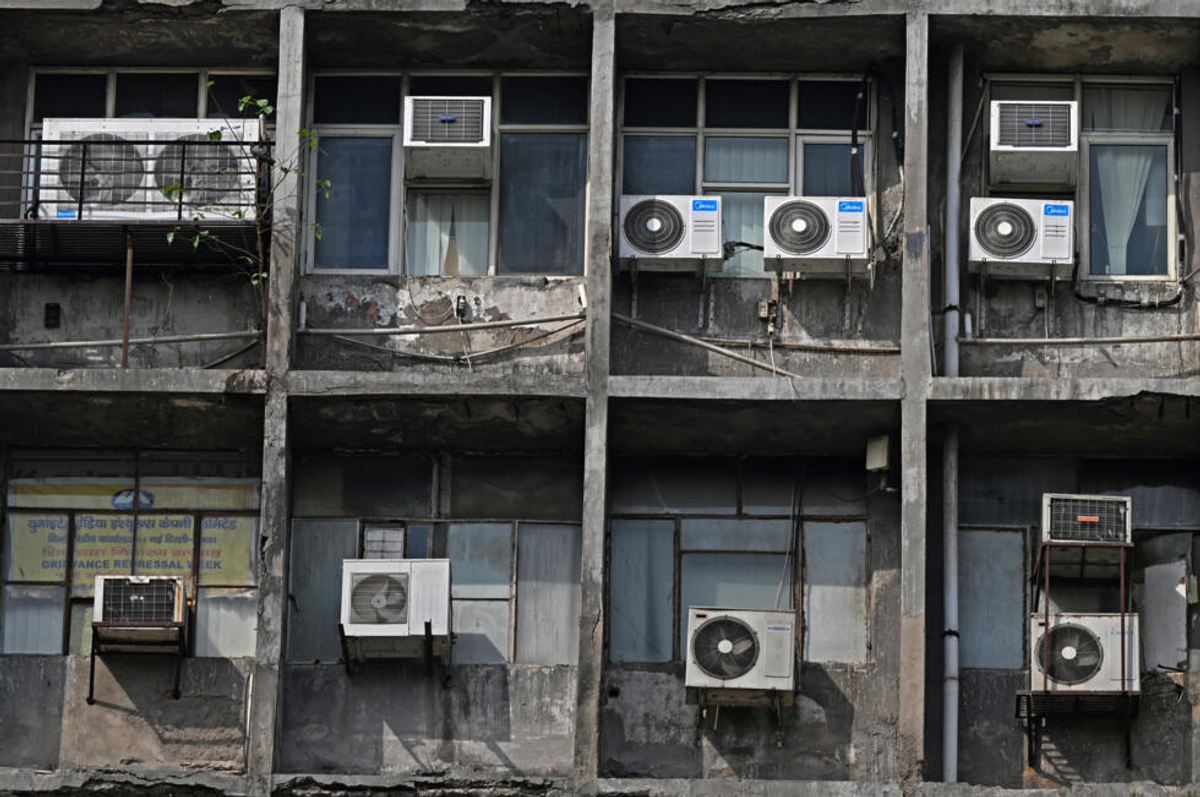Gaza's entire population faces critical risk of famine, global hunger monitor says
1.95 million people, or 93% of the population in Gaza, are living through high levels of acute food insecurity

Palestinians inspect the damage at a school sheltering displaced people, following an Israeli strike, in Jabalia refugee camp, in the northern Gaza Strip, May 12, 2025.
Reuters
The entire population of Gaza faces a critical risk of famine, with half a million of them facing starvation, a global hunger monitor said on Monday, calling this a major deterioration since its last report in October.
The latest assessment by the Integrated Food Security Phase Classification (IPC) analyzed a period from April 1 to May 10 this year and projected the situation until the end of September, according to a summary of its key findings.
Israel has sealed off the Gaza Strip since early March when it resumed its devastating military campaign against Hamas following the collapse of a ceasefire deal, during which aid agencies had delivered thousands of trucks of aid.
The IPC analysis found that 1.95 million people, or 93% of the population in the Israeli-blockaded Palestinian enclave, are living through high levels of acute food insecurity, including 244,000 experiencing the most severe, or "catastrophic", levels.
IPC's October analysis had said 133,000 people were in the "catastrophic" category.
The IPC analysis projected that 470,000 people, or 22% of the population, would fall into the catastrophic category by the end of September, with over a million more at "emergency" levels.
"Urgent action is needed to save lives and avert further starvation, further deaths and a descent into famine," it said.
Israeli officials have said they do not believe Gaza faces a hunger crisis, that enough aid has entered to sustain the enclave's population, and that they want to stop supplies coming under the control of Hamas.
The IPC, in a brief accompanying its latest analysis, said a plan announced on May 5 by Israeli authorities for delivering aid was "estimated to be highly insufficient to meet the population’s essential needs".
"The proposed distribution mechanisms are likely to create significant access barriers for large segments of the population," it added.
IPC analyses are produced with contributions from U.N. agencies and NGOs.
Popular
Spotlight
More from World
Indians buy 14 million ACs a year, and need many more
Studies show that the heat-emitting motors inside air conditioners can contribute to urban temperature rises by as much as one degree Celsius













Comments
See what people are discussing